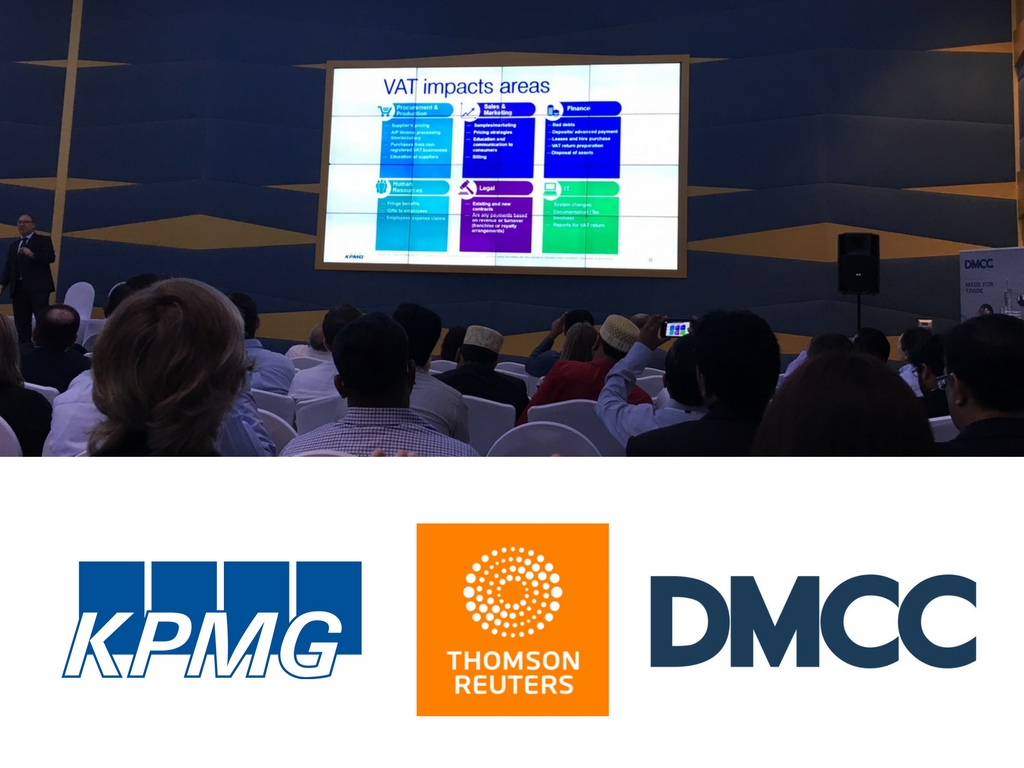
Thanks to DMCC Knowledge Series, KPMG and Thomson Reuters, I was able to attend an excellent and most informative presentation around the introduction of VAT in the UAE and GCC which is now officially going to be in place from January 2018.
It is going to an exciting and extremely challenging 2017 as businesses prepare for this huge change. It will impact every UAE business in one way or another. As the VAT framework is based around the EU model there are certain areas that will see flexibility which are thought to include healthcare, education, some staple food products and certain Free Zone businesses.
The live polling that took place during the seminar was extremely enlightening as 83% of businesses in attendance voted that they have not started to prepare for VAT, and with just over twelve months to go, there is a lot they need to do.
It is not just Finance and IT areas that will be impacted within an organisation but also HR, Sales & Marketing, Procurement & Production, and Legal departments. VAT is going to touch each area of a business!
The Federal Tax Authority in Abu Dhabi is already being established and will be fully operational next month for the start of 2017. This government entity will assume responsibility for maintaining tax records and liaising with jurisdictions in the GCC around their tax treaties.
It is important to remember that VAT is not a tax on industry, but is widely borne by the final consumer at the end of the supply chain. Businesses basically are responsible for the collection of the tax for the government.
Businesses need to be ready for the compliance aspect so they are able to reclaim VAT charges, and not face penalties for non-compliance. They also need to be ready for the impact on cash flow which is of prime importance.
Another interesting statistic that came from the attendees poll this morning was that 87% said they hadn’t planned for budget for the implementation of VAT; 12% had budgeted less than 100k AED; and 2% had budgeted between 100-500k.
The KPMG team have advised there are four critical phases in the implementation of this process:
- Phase One: Planning & Analysis – This should be happening now.
- Phase Two: Impact Assessment – This should happen as soon as possible.
- Phase Three: Implementation of VAT systems and processes – This should happen between April – December 2017
- Phase Four: Going Live! – This will happen from January 2018
In summary, the introduction of VAT is going to boost the economy in the region. The rate is anticipated to be at only 5% which is a lot lower than the countries that the framework has been modelled on. Businesses should prepare for this now as it is a reality and phased preparation and implementation will be of benefit in the long term.
Thanks to DMCC, KPMG and Thomson Reuters, for an excellent seminar.





